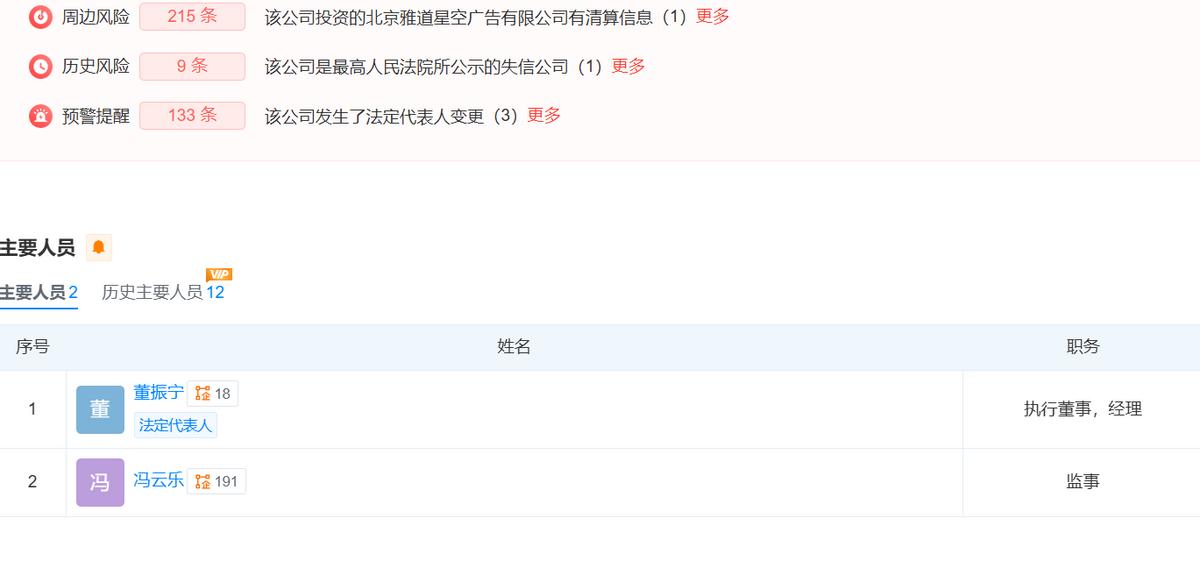Gaode and Douyin Collaborate: Can Their High-Stakes Partnership Achieve Both Critical Acclaim and Commercial Success?
![]() 01/13 2025
01/13 2025
![]() 585
585
Recently, Gaode has encountered a series of challenges.
According to public administrative penalty records from the Beijing Municipal Commission of Transport, Beijing Litong Chuxing Technology Co., Ltd., a subsidiary of Gaode, received 19 fines, all relating to violations of the Administrative Penalty Law of the People's Republic of China and the Interim Measures for the Administration of Online Taxi Booking and Operating Services.

Gaode's online ride-hailing business has consistently faced regulatory and compliance hurdles. On February 3, 2023, the Kunming Taxi Administration Bureau in Yunnan Province imposed an administrative penalty on Gaode, believing that, as a major online ride-hailing platform, Gaode should apply for a passenger taxi business license to operate legally.
For a large internet company, making mistakes is inevitable. The crucial part is acknowledging past shortcomings and rectifying them moving forward. As 2025 dawns, it presents a prime opportunity for Gaode to reflect on the past and look ahead to the future.
Recalling 2024, what significant events did Gaode navigate?
Upon closer inspection of Gaode's activities over the past year, three major events stand out:
Firstly, the further expansion of Gaode's instant delivery service; secondly, the relaunch of its ride-sharing service in October 2024; and thirdly, partnering with Douyin for group purchases at the end of the year.
What impact have these three events had on Gaode?
Let's start with Gaode's instant delivery service.
Amidst rumors that Alibaba planned to sell Ele.me to Douyin, Gaode's responsibilities intensified, as it now had to support Alibaba's entire local life business. Consequently, in November 2023, Gaode launched its "Gaode Instant Delivery" service in Beijing, Wuhan, Hangzhou, and other cities, signaling its commitment to building a delivery system centered on Fengniao.
It's not difficult to discern the strategy of Alibaba's senior management: if Ele.me can't compete with Meituan, why not utilize Gaode, which boasts a larger user base?
How much traffic does Gaode command?
QuestMobile's monthly active user data reveals 800 million, surpassing Douyin (766 million) and ranking second only to WeChat (1.05 billion), Taobao (920 million), and Alipay (890 million).
Unfortunately, despite Gaode's substantial traffic, the business group it belongs to has been incurring losses.
According to Alibaba's financial report, in the second quarter of fiscal year 2025, Alibaba's local life business adjusted EBITA recorded a loss of RMB 391 million.
With its vast traffic, Gaode has failed to lead Alibaba's local life business to profitability. Such a stark contrast undoubtedly puts pressure on Gaode.
This highlights another pain point for Gaode: possessing enormous traffic but experiencing a mismatch between monetization and user engagement.
Why is this the case?
This is also a challenge for Alibaba. Whether it's Alipay or Gaode, most users view them as convenient tools rather than spending significant time on them, resulting in low user stickiness.
For Gaode, the most common user journey is: search for a location - navigate - hail a taxi - exit Gaode.
This underscores that Gaode's core monetization business still revolves around travel and taxi services.
This brings us to the second major event Gaode undertook. Why did Gaode relaunch its ride-sharing service last year?
The core reason is that other local life businesses have not expanded significantly, and there are limited channels for monetizing traffic. Thus, it made sense to continue investing in the travel business.
But can Gaode's ride-sharing business sail smoothly?
The internet community believes that its travel business is currently facing considerable challenges and pressures.
Firstly, Gaode's business model is an aggregated taxi-hailing model, which has a fundamental flaw: it's impossible to deeply control service quality.
An aggregated taxi-hailing platform operates as a "money-making intermediary." The platform essentially serves as a "traffic broker," selling traffic to online ride-hailing service providers and earning income without heavily involving itself in offline operational services. This leads to Gaode's inability to control service quality, which is one of the reasons it frequently faces fines.
Secondly, driverless technology is becoming increasingly mature, poised to have a disruptive impact on the online ride-hailing industry.
With the advancement of artificial intelligence technology, a new technological revolution is driving a new industrial revolution. Just as Jack Ma led the emergence of e-commerce and disrupted traditional industries, the wave of artificial intelligence development is unstoppable.
Last year, Luobo Kuaipao gained popularity and successfully commercialized. According to industry insiders, the companies with the most advantages in driverless technology are autonomous driving companies and automakers due to their core cost advantage. For instance, a typical 10-kilometer taxi ride costs at least RMB 20, whereas Luobo Kuaipao charges only RMB 4, demonstrating a significant cost advantage.
Moreover, investing in driverless ride-hailing can address the issue of uncontrollable service quality on aggregated platforms.
Obviously, without the variable of human drivers, it becomes easier to standardize services.
With the emergence of driverless technology, a reshuffle in the travel sector is inevitable.
If Gaode insists on finding a way out, it must continue to develop traffic monetization channels. However, as mentioned earlier, Gaode's strong tool attribute makes it difficult for local life services to grow significantly.
Since going it alone isn't working, can collaboration with other platforms succeed?
This leads us to Gaode's recent major event: its successful partnership with Douyin for group purchases.
In practical terms, when users click on restaurants and other locations in Gaode Maps for navigation, Douyin's group purchase options appear below. Clicking on Douyin's group purchase redirects users to Douyin for checkout. After using Douyin's group purchases, clicking on the merchant's address prioritizes Gaode Maps for navigation.
This collaboration forms a powerful alliance. For Douyin, it leverages Gaode's technology and geographical location traffic to boost the commercialization of its local life services, connecting customers from navigation to the store. For Gaode, it diverts some of Douyin's massive traffic to its local life services.
Additionally, Gaode's local life services face another challenge: compared to Meituan and Douyin, its merchant resources are limited. Collaborating with Douyin can compensate for its shortcomings in local life services. Even if its local life business doesn't revitalize, it may still earn profit through commission fees from Douyin.
Another crucial external factor driving their collaboration is their shared competitor - Meituan. Relying on its food delivery business, Meituan firmly holds the market share of local life services and occupies users' minds. In this regard, Douyin and Gaode can only temporarily concede defeat, leaving ample room for cooperation.
The internet community believes that there's a drawback to this collaboration for Gaode: in partnering with Douyin, Gaode largely serves as a "tool." However, for Gaode to succeed in the local life market, it needs to change users' perception of it as merely a "tool," which somewhat contradicts Gaode's local life strategy implementation.
The most likely outcome is that users will open Douyin's group purchase - purchase goods - use Gaode for navigation - close the page, essentially paving the way for Douyin's success.
Amidst these developments, will the pressure on Gaode shift to Guo Ning?
Despite the collaboration between Gaode and Douyin, both aim to secure a share of the local life market, maintaining a certain competitive relationship. While Douyin started late, it boasts substantial traffic and a rapid start-up speed, now intending to compete with Meituan. As a veteran, Gaode finds itself in an awkward position.
From a commercial perspective, the pressures Gaode will face on the business battlefield in the future won't be easy, and this pressure will naturally extend to the CEO.
In March of last year, at the end of Alibaba's fiscal year, Yu Yongfu resigned from his management position at the Local Life Group. Liu Zhenfei, an Alibaba veteran who previously oversaw the advertising technology team and built the Alimama advertising system, became the chairman of Gaode, while Guo Ning, COO of Gaode Maps, took on the role of CEO.
It's reported that in March 2023, Alibaba integrated its on-site business Koubei into Gaode, making Guo Ning the de facto manager of Alibaba's local life on-site business.
According to information from Tianyancha APP, Alibaba acquired Gaode in 2014. Reports indicate that Guo Ning was already a senior executive at Gaode before the acquisition. Sources suggest that the "parachute executives" sent by Alibaba Group are more like "spokespersons," whereas Guo Ning, as a Gaode veteran, holds decision-making power in business advancements.

Obviously, the position of CEO comes with greater decision-making power and heavier responsibilities. Moreover, the current situation presents both "internal worries" and "external threats."
The internal worry remains the issue of commercialization. From the perspective of the Local Life Group, the primary problem is still resolving losses. The pressure transmitted to Gaode essentially revolves around the commercialization of its local life business.
This presents a challenge for Guo Ning.
According to publicly available media information, before being promoted to COO, Guo Ning was responsible for Gaode's CE business line, encompassing autonomous travel services such as travel planning and navigation. Guo Ning was the top executive in this department.
In fact, Gaode's monthly active user base exceeding 800 million is largely attributed to Guo Ning's contributions. After all, as a map app, the more user-friendly the software, the more users it attracts.
In other words, while Guo Ning may have extensive experience in the CE business, it remains to be seen whether he can achieve results in the commercialization of local life services and meet Alibaba's established commercialization targets for this sector.
Currently, Guo Ning doesn't have many options.
Although the Gaode app boasts immense traffic, its commercialization potential remains unclear.
From a user's perspective, downloading Gaode is primarily for travel purposes. While there may also be demands for dining, entertainment, etc., intuitively, users still prefer apps like Meituan and Douyin. Changing user habits is costly, but can Gaode still afford to engage in a price war?
Beyond "internal worries," external threats stem from industry competition.
In fact, compared to Alibaba's focus on Meituan, Douyin's efforts in local life services also have an impact.
Past experience shows that when two competitors clash in business, the longer the battle lasts, the more injured the third party observing the fight becomes. Douyin has been engaging in a battle with Meituan in the local life sector for some time now. How to respond and find a sense of existence in this competition may be issues that need to be considered.
Speaking of Douyin's efforts in local life services, another company, WeChat, cannot be overlooked.
Currently, WeChat's video number is performing well and is following Douyin and Kuaishou's path in live streaming and commercialization. If Douyin validates the local life sector's potential, will WeChat join in the future?
WeChat doesn't lack traffic or user habits. If the video number ventures into the local life business, it will have a significant advantage. By then, what should Gaode do?
Alibaba is not lacking in innovation ability or spirit. We eagerly anticipate Gaode to provide a satisfying answer with its products and services in 2025.
Disclaimer: This article is based on the company's statutory disclosure content and publicly available information, but the author does not guarantee the completeness or timeliness of the information. Additionally, the stock market is risky, and investors should exercise caution. This article does not constitute investment advice, and investors must make their own judgments on whether to invest.







